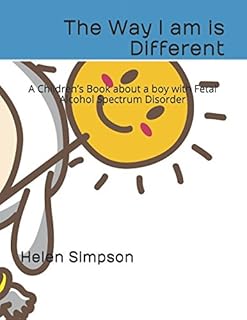A recent study conducted by the University of Sydney has shed light on the prevalence of fetal alcohol spectrum disorder (FASD) in Australia. The research revealed that up to one in 28 Australians, equivalent to approximately one child in every classroom, may be affected by FASD. This condition, resulting from prenatal alcohol exposure, can have severe and long-lasting consequences on individuals, including learning and behavioral challenges.
The study, published in the Drug and Alcohol Review, utilized national-level modeling to estimate the prevalence of FASD in the general population. By analyzing data on alcohol consumption during pregnancy and the associated risks of FASD, researchers determined a national prevalence rate of 3.64 percent. This finding underscores the significant impact of FASD as the most common preventable cause of acquired brain injury and birth defects in Australia.
Professor Elizabeth Elliott, a leading expert in the field, emphasized the critical importance of preventing FASD by abstaining from alcohol during pregnancy. She highlighted the need for increased awareness and early intervention to address the challenges faced by individuals living with FASD, particularly in vulnerable populations such as youth in detention and Indigenous communities.
The study also dispelled myths surrounding prenatal alcohol exposure, emphasizing that there is no safe window for alcohol consumption during pregnancy. Maternal age, genetics, and the timing of alcohol exposure all play a role in determining the risk to the developing fetus. The National Health and Medical Research Council recommends complete abstinence from alcohol for pregnant women or those planning a pregnancy.
Sophie Harrington, CEO of the National Organisation for Fetal Alcohol Spectrum Disorders (NOFASD) Australia, stressed the importance of raising awareness about FASD and providing support for affected individuals and families. Jessica Birch, a young adult living with FASD, highlighted the transformative impact of receiving a diagnosis and the subsequent access to support and understanding.
FASD is a permanent and preventable condition that not only affects individuals and families but also places a significant burden on healthcare, education, and justice systems. The National FASD Strategy in Australia recognizes the need for accurate prevalence data to shape policies and services that support those living with FASD.
While the study focused on FASD, previous research has shown that alcohol exposure during pregnancy can lead to various adverse outcomes, including epigenetic changes that may impact health later in life. The findings underscore the importance of addressing alcohol’s impact on pregnancy and the developing fetus to prevent future cases of FASD.
The research was led by Dr. Tracey Tsang, a dedicated advocate for children with FASD who sadly passed away before the study’s publication. Her legacy lives on through the study’s findings, which aim to advance understanding and prevention efforts related to FASD. The study serves as a tribute to Dr. Tsang’s commitment to improving the lives of individuals affected by FASD.
📰 Related Articles
- Zimbabwe Study Reveals High Uptake of Menstrual Health Services
- Study Reveals Rising Income Needed for Australian Property Buyers
- Study Reveals Health Risks in Australian Plant-Based Foods
- Study Reveals Greyhound Racing Welfare Gaps Across Australian States
- Study Reveals Challenges for Chinese Students in Australian Job Market






